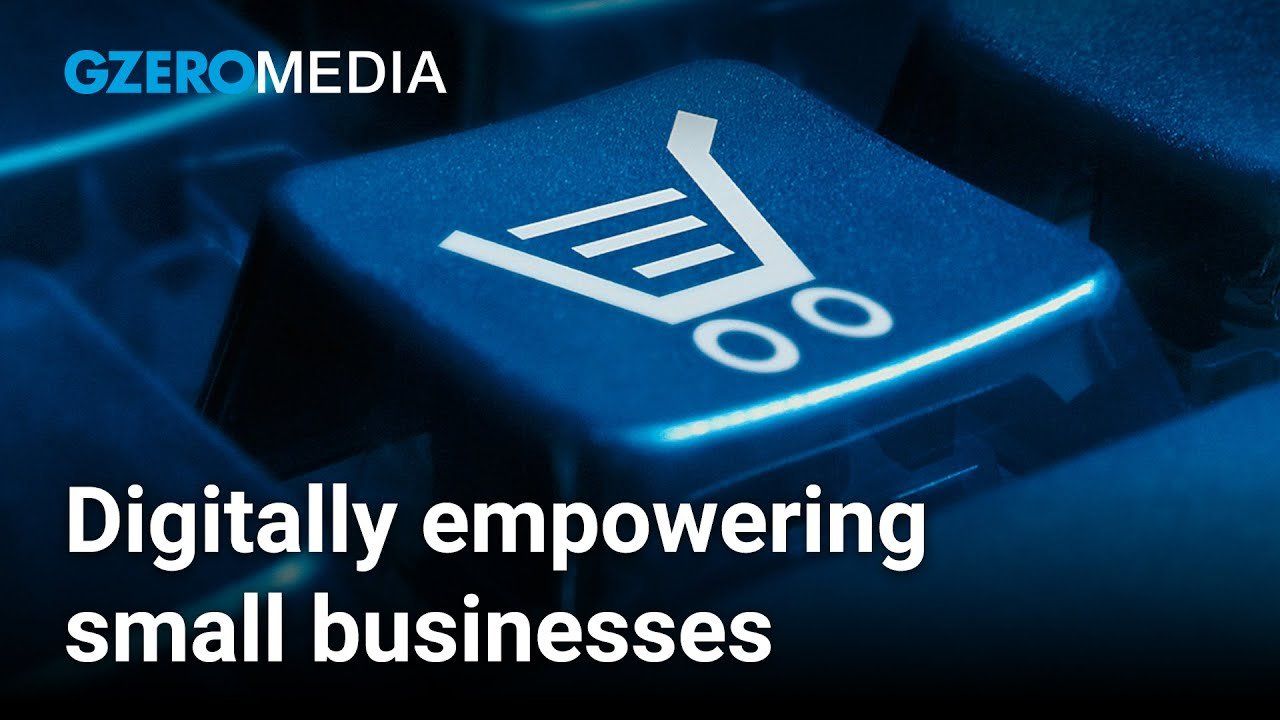Rajiv Garodia, global head of government solutions for Visa, delved into the critical role of small businesses in the modern economy, particularly in the context of the COVID-19 pandemic. In a GZERO livestream event presented by Visa, Garodia says the pandemic exposed vulnerabilities of small and medium sized businesses including the lack of digital skills among many small business owners. As consumer behavior shifted towards digital channels, small businesses found themselves unable to keep pace. The ability to collect payments became increasingly reliant on digital transactions and those unable to offer digital payment options risked exclusion from the broader economy.
To address this issue, Rajiv emphasized the importance of collaborative efforts between the private and public sectors. He says governments and businesses must work together to equip small businesses with essential digital tools, from fostering digital literacy to providing necessary technology solutions, such as creating digital storefronts, enabling digital payment acceptance, and utilizing digital tools for accounting and inventory management.
Technology plays a pivotal role in leveling the playing field for small businesses. Rajiv shared an ambitious initiative aimed at digitally empowering 50 million small businesses by 2023. The innovation here lies in simplifying access to digital payment infrastructure by enabling smartphones to accept payments, a transformational leap towards digital inclusion for small business owners.
To hear more about the challenges and opportunities that nation-states face when it comes to digitization, and how it could shape a more inclusive and resilient future, watch the full livestream conversation:
What Ukraine's digital revolution teaches the world
More For You
People in support of former South Korean President Yoon Suk Yeol rally near Seoul Central District Court in Seoul on Feb. 19, 2026. The court sentenced him to life imprisonment the same day for leading an insurrection with his short-lived declaration of martial law in December 2024.
65: The age of former South Korean President Yoon Suk Yeol, who was sentenced to life in prison on Thursday after being found guilty of plotting an insurrection when he declared martial law in 2024.
Most Popular
In an era when geopolitics can feel overwhelming and remote, sometimes the best messengers are made of felt and foam.
The Hungarian election is off to the races, and nationalist Prime Minister Viktor Orbán is facing his most serious challenger in 16 years.
Does skepticism rule the day in politics? Public opinion data collected as part of the Munich Security Conference’s annual report found that large shares of respondents in G7 and several BRICS countries believed their governments’ policies would leave future generations worse off.
